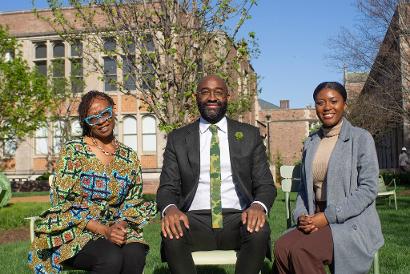

HOWTOSURVIVE THEACADEMY




- Letter from theEditor (pg. 4-5)
- Current Fellows (pg. 6-7)
- New Fellows (pg 8-9)
- Why Academia?(pg 10-11)
- A Faculty Thank you! (pg. 12) Methods.................................................
- Disabilities in theAcademy (pg 14-15)
- Planning is Key! (pg 16)
- Professionalism in theAcademy (pg 17)
- How to ManageFinances in College(pg 18-19)
- Cultivating Spaces for Community (pg. 20-21)
- How Do I Choose?(pg. 22-23)
- Surviving theArchive(pg 24-25)
- Maintaining Balance(pg. 27)
- Navigating Gap Years (pg 28-29)
- Reclaiming Creativity (pg 30)
- Studying Abroad (pg. 31)
- Alumni Spotlight (pg 33)
- Lessons From Alumni (pg. 34-35)

Abst
By Maya PhelpsHi everyone! My name is Maya, and I am the WashU Mellon Mays Undergraduate Fellowship Intern for the 2023-24 school year. It has been my absolute pleasure to serve this fellowship in my position, but more than anything, I am grateful to be a part of this community Mellon Mays connected me with lifetime mentors, friends, Sorors, and a larger network of scholars that have, and continue, to sustain me and my work. Mellon Mays provides the space for you to grow and learn, but spaces like seminars, bonding, and discussions also offer important opportunities to negotiate and understand our positionalities as ethnically and racially marginalized academics.
When I reflect on my time in Mellon, I realize how much knowledge and wisdom I gained from the connections and mentorship Mellon provided From navigating the professoriate to skills for reading and writing for a thesis to the politics of academia, Mellon Mays mentors, directors, and professors facilitate spaces to learn and ask questions This is deeply important, especially for students with no prior entry point to the academy. The Fellows and I centered that strategic knowledgewhen webrainstormed about themes for this issue Dispersing thewealth of resources we benefit from in being a part of such a well-supported network felt like a core part of Mellon Mays?s mission; we hope that you gain something useful from the tools that support(ed) our undergraduate careers, and those that will continue to support us throughout our academic careers
ract
On behalf of WashU Mellon Mays, we present to you: ?How to Survive the Academy: A ?How to? Guidefor Navigating Academia ? Westructurethis magazinelikean academic journal Weprovide an introduction for context and to set up the larger project Next, we give you methods We chose these articles to depict a range of ways to support both your livelihoods outside of academic work as well as methods to navigate doing research We then provide our findings, which shows the choices and impacts we take through existing in the academy. Lastly, in the discussion we focus mainly on post-graduation or additional academic experiences that enriched fellows?and alumni research and growth
The times Mellon changed my trajectory were moments of vulnerability and care I hope you find this message embedded in the stories and experiences my peers share with each of you. We create this guide out of love, knowing that navigating the academy as people with marginalized identities can be scary, violent, lonely, and at times feels impossible. We are here to tell you that you are not alone and your experiences are not insignificant May each of you continue your commitments to your selfhood and your work in communities of care, however that looks for you!
Current Fellows
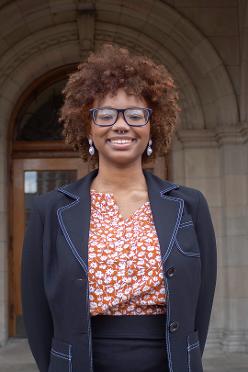
Leandrea Clay
Buku Bounce: A Critical View of Black Authenticity and Regional Identity

Amanda Young ChineseStudents, Jim Crow Schools: Navigating Education in a Black-and-White Society

Zach Gore
Crimevs
Characterization: A comparativeproject on Latin American Criminal Organization

Han Zhang
Streaming Safer Spaces: ThePolitics of Chat and theConstruction of Queer Community on Twitch tv

Jermicah Lott
Subsistenceto Destitution: The Proleterianization of Black Working Classes
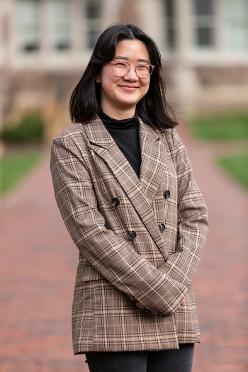

Ad'mirel Durden

Tori Harwell
Constructing Gender, Class, and Asian American Identity: Panethnic Magazines in the1970?s and 2020?s

Maya Phelps
Rejection, Creation, and Abolitionist Futures: Sustaining Ecosystems of Care Under Neoliberal Violence
?I?ll Find A Way ? No Matter What?: Hyper-independence?s Impact on Black Femmes and Women?s Interpersonal Relationships

Lucas Veloria
Navigating the Neo-ExtractiveDilemma in Bolivia: Examining the Developments in Alvaro Garcia Linera?s Political Rhetoric
Growing Subversion; Black Queer Kinship, Black Geographies, and Chocolate
WelcomingOur

Subratha Araselvan
Expanding theSouth Asian Subaltern: Non-Normative Existences, South Asian Feminisms and Western Feminist Thought

Oluwatoni John
What?s In a Wedding? Cultureand Christianity in Twentieth-Century Nigerian Weddings

Ciara Avelar
Honoring Diasporican Representation and ResilienceThrough Artistic Movements

Nissi Yorke
A Community Connected: Technological Adoption on Cultureand Community through Internet Cafes in Rural Ghana

Fatuma I brahim
Beyond Somalia:
Understanding The Entrepreneurial Journey Preserving Somali Culture
32ndCohort

WhyAcademia? A Guideto Choosing if
By Han ZhangMellon Graduate Mentor Christina Smiley was interviewed about her motivations for applying tograduateschool and her decision toattend.
Walking into her first-year political science class, Christina was unsure of what to expect It was her first time taking a class like that, and it was her first experience having a Black woman professor From that moment on, however, Christina knew she wanted to be like her professor The same professor would later become a mentor throughout Christina?s undergraduate years and even a sorority sister The opportunity to talk to and build relationships with professors was a large part of Christina?s decision to go to doctorateschool
?At that point, I knew I wanted to get a doctoral degree but I didn? t know in what,? Christina said. ?I thought about getting a doctorate in musical arts, but I changed my mind after having conversations with another of my professors. Those talks helped me decide that I wanted to get a PhD in musicology, which would combine my interest in research with my interest in music ?
A large part of Christina?s decision came from her interest in research. Knowing that she wanted to work in academia, she became set on going to graduate school. Without the opportunity to pursue higher education, Christina believes she never would have had the time to dedicate to research that she has
now Even so, there were several other factors that played into her decision to attend graduateschool, oneof which was the commitment of accepting an offer to go
?I knew from day one that this was something I wanted,? Christina stated. ?One of the big things that I had to think about, though, was the fact that this was a huge commitment. I would be moving to another state for at least six years, and I would have to stay there and be in a PhD program the entire time. That was actually a question they asked me when I was interviewed for the WashU PhD program. They asked, ?Would you be willing to make the commitment to staying here for at least six years??and I had to think about my answer to that question.?
Despite her concerns about the time and atmosphere of a new environment, Christina was motivated by her desire to be a representative of people of color in academia that had been present for her as an undergraduate. In addition, the thought of new opportunities to learn and meet other academics offset the nervousness of moving, although she did have to consider the different challenges of moving to a new environment so far from home.
?Looking back on it, I?m really glad I made this decision,? Christina said. ?Not just because I get to be a part of the representation that inspired me as a freshman, but becauseof all the
theAcademy is for You
opportunities that have come out of going to grad school Here, I?ve been able to access opportunities for professional development, like teaching us how to be well-rounded professors that aren? t necessarily good at just research but arealso good teachers.?
Some of her biggest motivation came from the people closest to her: her family and friends. As the only one out of her five siblings to finish college, Christina was nervous to continue on to higher education, but her family, and her mother especially, gave her as much encouragement as she needed Support from her family and other people close to her was an integral factor in making her decision
?My mom was one of the few people in her community who went to college, and she always felt like she stifled herself by going to a college just up the road instead of trying to go to a different institution,? Christina said. ?Then she dedicated a lot of her life to being a stay-at-home mom, so when I would talk to her about going to graduate school, she was always very supportive. She always told me to go for it, so I did. And actually getting into grad school was a huge boost for me, because I knew that it meant there were other peopleout therewho believed in me.?



Thankyou toOur FacultyMentors!

Thank you to our faculty mentors for their continuous support of our program.
This year's faculty mentors include:
Dr. Clarissa Hayward
Dr. Zakiya Luna
Dr. Cynthia Feliciano
Dr. Linling Gao-Miles
Dr. MichellePurdy
Dr. Samuel Shearer
Dr. Timothy Parsons
Dr. Douglass Flowe
Dr. Zachary Manditch-Prottas
Dr. Raven Maragh-Lloyd



Methods
Disabilitiesinthe
Eight Tips for Self-Advocacy and CarewhileNavigating Ablelist Institutions
The sun disappeared beyond the horizon; the old artificial lights colored the African and African American hallway Professor Fenderson, Maya, and I sat talking Maya and I possessed the same nervousness as many other students on theprecipiceof turning in a senior honors thesis As wetalked, I revealed that I was struggling with some health issues, and it felt like they were getting in the way of my ability to write the remainder of my thesis. But, in the moments beyond conversation with other Mellons Mays Fellows, I struggled to juggle endless doctor appointments, medical racism, and advocating for accessibility in the face of white supremacist ableism It was hard to admit that the barriers to success felt insurmountableas an intersectionality-oppressed individual
I am a proudly Black, Non-binary, Queer, and disabled person; these parts of my identity profoundly shape me Unfortunately, the structural systems of oppression that coincide with my identity also affect if and how I show up in the university setting Some of my writing sessions happened at the doctor's officeas I sat
1
2
In approaching my disabilities, I found that community is key and that individualism is dangerous, so find your person, be that your Mellon mentor, friends, or family, to help you meet your needs and not struggle alone.
If you don? t think you can do it, don? t because it will get done at a different point.
3
If possible, communicate early and often when asking for extensions and, moreimportantly, help
4
Do what works for you; if that means writing in your bed, do it? there is no right way
Academy
By Tori Harwellwaiting to hear the next steps or from the confines of my bed when I could not manage to walk. I hope the lessons I learned throughout my undergraduate studies can help others who also struggleto maketheir world moreaccessiblein thefaceof structurally ableist spaces as a multi-oppressed person To begin with, it is not a you problem There are days when you can not produce, write, read, or exist in a way that is understandableto capitalism. Thus, I choose to harken back to the words of Patty Berne, an artist and disability justice advocate, ?the history of white supremacy and ableism are inextricably entwined; both are forged in the crucible of colonial conquest and capitalist domination?(Berne qdt in Piepzna-Samaerasinha 20-21). It is essential to start from a placeof disability justice, ?that all bodies areuniqueand essential, that all bodies have strengths and needs that must be met? (Piepzna-Samaerasinha 21)
5 6 7 8
Get institutional support; go to the office of disability resources because you areprotected under theAmerican Disability Act.
Recognize how your disability is a source of creativity, scholarly intervention, and a sourceof personal knowledge
Know that you are worthy of love, respect, care, and appreciation intrinsically? your final product is not tied to your worth.
Undergraduate research is all about learning your process to lean into moments of unknown and discomfort to find how you do it best
TheKeyisPlanning!
How to Effectively ManageYour Time
Timemanagement is a matter of prioritizing and planning to fulfill your various responsibilities. Have you ever felt like you wish there were more than 24 hours in the day? Me too! However, the key to time management is to first accept that time is a limited entity Therefore, when managing your time, it is crucial to identify what your main priorities are and how much time you need to allocate to your various commitments/responsibilities Some ways to manage your time are to have an organization system. For example, some people use virtual platforms such as Google Calendar or Notion, whereas others find having a physical planner more helpful When finding a system, it is about what works best for you, so identify organization strategies that align with your needs Once you identify your system, it is now timeto figureout how to prioritizeyour time.
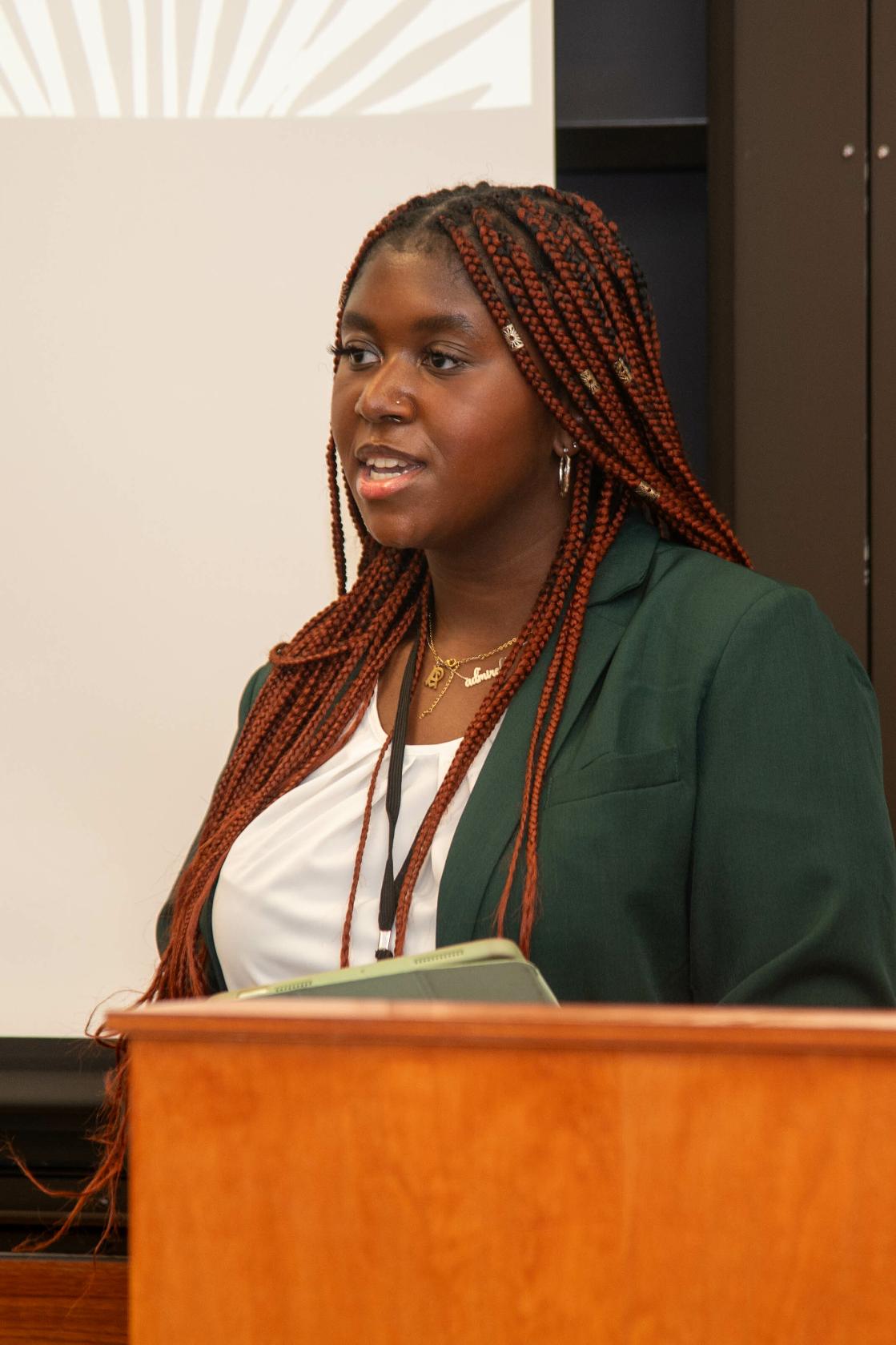 By Ad'mirel Durden
By Ad'mirel Durden
I manage my time by evaluating each task by urgency, importance, and flexibility For instance, if I have three assignments due throughout the week, I will prioritize them based on the deadline and the weight of the assignment itself. If I have an assignment that is due on Wednesday, and worth 20% of my grade, I will first devote my time to that assignment over a discussion post that is due on Tuesday Another helpful way to manage time is to devote a day to completing big assignments such as essays or studying for major exams By having a dedicated day in the week, you will be able to follow a consistent, routine that sets you up for success during the week While it is important to fulfill your responsibilities, you also have a responsibility to take care of yourself, so be sure to also schedule at least one me day throughout theweek to maintain your well-being!
ProfessionalismintheAcademy

Fashion and Beauty Edition.
Throughout my time in academic spaces, one of the biggest challenges has been navigating professionalism in terms of fashion and expression. The penguin suits and pencil skirts hardly match my senseof comfort.
What isyour favoriteandleast favoritething toseeacademicswear?
I love seeing some fresh kicks! Particularly by women. I'm not a sneakerhead (don't come for me) but love to see other people makeit work. Least favorite: hm, that's tough. I honestly don't pay attention much to what I don't like If I had to pick, I'd say it's obvious when we're trying to dress in a style that isn't us, personality or age-wise; wear what you love and what you feel good in!???
How hasyour experiencebeen in navigating professional attirewithin academicspaces?
Academia is a weird space for professional wear You see the gamut from hoodies and sneakers to full suits and heels. I had to figure out my personal style early on and lean in to what makes me feel like myself in and outside of work So my experience has been one of self-revelations? what styles I want to pick up and what I'm going to leave to somebody else?
What advicewould you giveyounger people enteringspaceswithexpectationsof professionalism?
Wear what you feel good in! Of course, what you wear and how you style it is your first impression to people, so be aware of how you enter professional spaces That being said, own your own personal vibes and buy clothes that you could move from space to space in (brunch to the office, anyone?!)
and feel good about yourself
By Leandrea ClayHowever, I started to pay attention to the most dripped out and dressed up academics that I know? one being Dr. Raven Maragh-Lloyd. Join me for a look into Dr. Maragh-Lloyd?s closet and library!

As Mellon Mays graduates, you will be heading out into the world and facing a variety of financial decisions both big and small ? from renting an apartment to setting up a 401(k) for retirement
Your budgeting skills, credit score, and savings will all play a role in your achieving certain financial milestones, like putting a down payment on a house or fully paying off your student debt Below are five personal financetips that will giveyou a head start to effectively managing money and put you on thepath to financial success.
HowTo Manage Financesin College 2
Start saving for retirement now
Once you create a realistic budget, you can start saving and investing for your future
You may be asking, why you should be concerned about retirement (which why you should be concerned about retirement which will likely be decades in the future) when you are just graduating and entering the workforce or graduate school? The answer is because you have two powerful tools working on your behalf - time and compounding Investing for retirement early gives your money timeto grow and compound on itself, which means you will have more funds to rely on when you stop working.
Create a monthly budget
1The first step to building a successful financial future is managing your cashflow. This can be accomplished by developing a monthly spending plan or budget, which provides the stability needed to control your money, plan for emergencies, reach your short and long-term goals and help you develop good financial habits overall. There are several methods available such as the 50/30/20 Rule, a strategy where you aim to spend 50% of your budget on essentials such as rent or mortgage payments, transportation, food, and student loan debt; 30% is spent on discretionary expenses such as travel, eating out and shopping; with the remaining 20% going toward savings and investments, such as contributions to your 401(k) and an emergency fund
Another popular strategy is the values-based budget, which is theprocess
of creating a budget that categorizes spending based on your core values
thing is to explore different methods to determine
Theimportant the budgeting style that works best for you.



3
Create a student loan repayment plan
Start early by gathering all the necessary information about your student loans. This includes details such as which loans arefederal and
which are private, the outstanding balances, interest rates, repayment terms, and any grace periods or deferment options.
Familiarize yourself with the various repayment options available for your student loans If you?re unsure which plan is right for you, contact your loan servicer for guidance
Start an Emergency Fund
4
Life is unpredictable, and having savings set aside provides a buffer against future uncertainties. Whether it is an unexpected car repair, medical bills, or job loss
An emergency fund provides a financial safety net in case of unplanned expenses or emergencies and brings peace of mind Focus on having at least a $1,000 budget, even if you slowly build to that point!
6
As you start earning money, it?s natural to experience
temptation to spend more A common phenomenon, ?lifestyle creep? refers to the gradual increase in spending or expenses as income increases As a recent graduate, this temptation may be the
especially strong if you have been on a tight budget with limited indulgences throughout college. There is nothing wrong with enjoying the benefits of a higher income. But if you are not careful, overspending on non-essentials can rapidly snowball into a bigger issue. Some additional tips to help you combat this problem include
1) delaying gratification by practicing a ?cooling off? period before making significant purchase, 2) instead of indulging in expensive treats or luxury purchases, explore affordable ways to reward yourself and 3) try to maintain your current standard of living every time you receivea raiseor bonus
Begin building and protecting your credit score
5
A credit score serves as a financial fingerprint, a numerical representation of an individual's creditworthiness This three-digit number wields considerable influence over many aspects of your life such as renting an apartment, purchasing a car, and may impact employment opportunities. Your FICO credit score is determined by five factors- payment history, credit utilization, length of credit history, new credit, and credit mix
Thebig takeaway in managing your debt is to 1) make your payments on time, 2) keep your credit card balanced under 30% of availablecredit, 3) avoid opening new credit accounts, and 4) keep a good mixtureof fixed and revolving credit.

CultivatingSpacesfor Community
Finding Community Support to Combat Isolation
By Lucas VeloriaIn my experience as an undergraduate at Washington University in St Louis, being a part of the Mellon Mays Undergraduate Fellowship program has been instrumental in fostering a personal sense of community both on campus and within the academy. The fellowship?s focus on supporting scholars from historically marginalized groups creates a supportive network where aspiring scholars can share experiences, challenges, and successes in navigating academia. This was particularly the case in my experience with the Mellon Mays Summer Research Program I attended in the Summer of 2023 at the University of Chicago I was surrounded by motivated, scholarly students who shared similar progressive values and ideas The fellowship, and the programs that it offers, provides opportunities to connect with peers and mentors who come from similar backgrounds and share similar aspirations. This includes financial support for research endeavors, access to specialized training and workshops, and guidance from experienced faculty mentors. However, ultimately, the main strength of the fellowship is that it cultivates a community where students can find solidarity, encouragement, and guidance throughout their academic journeys
As a member of a Mellon cohort, the program not only offers funds and reimbursements for group outings but also fosters a sense of community through shared experiences and collaborativeendeavors. Theseoutings provide opportunities for memorable bonding nights over dinners and cohort activities, creating a supportiveand inclusive atmosphere conducive to academic and personal growth However, beyond the financial support and structured summer programs facilitated by the Mellon Mays Foundation, the true essence of being a Mellon scholar lies in the cultivation of interpersonal relationships within thecohort.
Engaging in a fellowship like Mellon Mays entails more than just academic collaboration; it entails actively participating in the development of a supportive community
Beyond just the reading and editing of your peer?s work that you will do over your course of being a Mellon, you will ultimately forge deep connections with fellow scholars who want nothing more but to see you succeed Thetypes of bonds built in Mellon offer

support, mentorship, and a sense of community that transcends individual research projects In an academic environment that often feels isolating and distant, it is through these networks that I was able to feel confident in both my writing and research as well as reaffirmed in the direction of my project.
Furthermore, proactive engagement in fellowship activities and initiatives can contribute to the cultivation of a strong sense of belonging and camaraderie within the cohort. Whether it's organizing group study sessions, initiating collaborative research projects, or volunteering for leadership roles within the fellowship, taking an active role in shaping the fellowship experience can enhance community cohesion and foster meaningful connections among members. Mellon Mays involves actively cultivating a supportive community through meaningful engagement with each other?s work and intellectual contributions, collaborative endeavors, and being there for one another.
Fellowships like the Mellon Mays Foundation are important spaces for dynamic and nurturing environments where all members can grow and learn together, and thrive both academically and personally through mutual support.

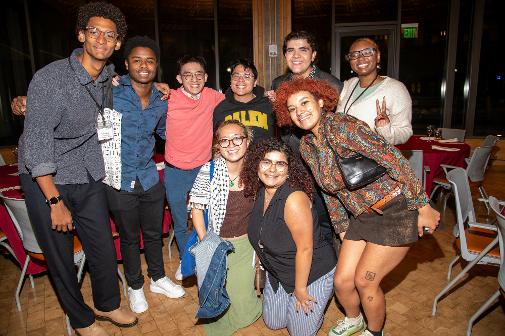
HowDoIChoose? A Guideto Considering GraduateSchool Options
By Christina Smiley
TheFit.
1. Could at least two or three faculty members becomea potential advisor?
2 Are there professors in other departments that you would want to take classes and build relationships with?
3. What is your future departments? specialty? Does the program have a reputation for prioritizing and producing scholars within your rangeof interests?
4 What is the department culture? Is it intense and traditional, or is it communal and flexible concerning research interests?
5. How sizable is the department? Would you need one-on-oneattention or moreindependence?
TheLocation.
1. What is thecost of living?
2 What does the off-campus life look like? Is it a rural or urban environment?
3. Do you want and need access to public transportation?
4 If you travel frequently, how close is the nearest airport?
5. What is the weather like year-round? Would you haveto purchasea new wardrobe?

With hundreds of excellent graduateschools worldwide, selecting a singleprogram can seem likea daunting task After all, it is a multi-year commitment that could alter thetrajectory of your life! But do not worry! We have proposed four aspects to consider in choosing the best graduate program for you These include: The Fit, The Location, The I nstitution, and The Funding. In your decision-making process, keep these four elements and the subsequent--though not exhaustive--- list of questions accompanying them in mind

TheFunding.
1. Does thepackageincludehealth insurance?
2. Does it cover administrative fees such as student activity fees?
3. Would your future department assist you with relocation costs?
4 Will you have access to research and conferencetravel funds?
TheInstitution.
1 Does the institution have student amenities such as printing services and access to Adobe?
2. Does the university prioritize professional development outsideof research?
3 What are the degree requirements and courseofferings?
4. What are the TA requirements? Would you beableto teach your own courses?
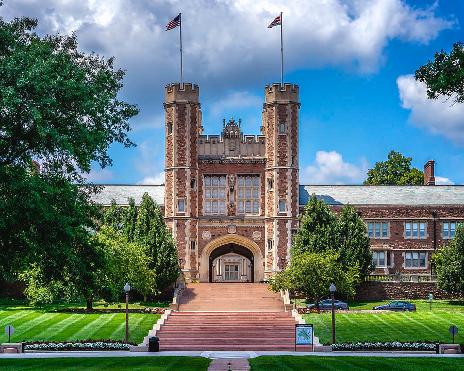
SurvivingtheArchive A Guideto Archival Research and Oral Histories
Oneof my favoriteparts about research is talking to peopleabout their first-hand experiences With oral histories, I get to hear narrators share about their lives and opinions, in their own words and based on their own perspectives For historically marginalized groups whose voices have often been left out of historical records, I see oral histories as a critical way of preserving the past and passing stories on to future generations In many non-Western cultures, intergenerational oral storytelling is culturally significant. Educational Studies coursework taught methat thephrase, ?Worship of the written word,?is part of whitesupremacy culture Moreover, oral histories help us learn moreabout social relations than, say, a newspaper article or report card As I consider ideas like identity, socialization, and racial formation in the segregated South, I really appreciate the opportunity to hear directly from my narrators about their understandings of raceand thecultural environment
My process for conducting oral histories begins with reaching out to narrators, introducing myself, letting them know where I got their contact information from, and sharing a bit about my project. In trueGen Z fashion, I strongly dislikephonecalls, but I havelearned it is much better to call than email. If they agree to let me interview them, we will set up a time to talk via Zoom or phone call, as I have done almost all my interviews virtually so far Before the interview, I?ll create an interview guide using feedback from my mentor, Dr. Michelle Purdy with open-ended questions, topics, and background research My questions are usually ordered chronologically, and I start with simpler questions first, to build rapport and make them feel comfortable. In the interview, I try to cover their childhood, family, academic and social schooling, important places in the community like churches and grocery stores, their understanding of race relations, post-high school experiences, and reflections on living in theJim Crow South.
I always begin by asking for their permission to record the interview and use it in my research project with their name I use Otter ai to record because it generates a transcript of the interview automatically ? I?vefound that it?s faster to clean up a document than transcribeit in its entirety.


Throughout the interview, I listen closely and ask follow-up questions, but I also let them take the lead in some parts. I sometimes have to steer the conversation ? I once asked someone where they were born, and they talked me through most of their life story ? but if they are eager to share, I think it?s interesting to know what they consider most important about their life and story. If available, I usephotos to jog their memory
When I first started my project, Dr Purdy encouraged me to read a few chapters from Valerie Yow?s book, RecordingOral History: A Guidefor theHumanitiesand Social Sciences. Yow highlights the benefits of oral histories ? ?it is through oral history that the dimensions of life within a community areilluminated? ? but they also havesomelimitations. Perhaps most obvious is that human memory is not infallible. My narrators, often between 75 and 90 years old, will not recall in perfect detail what they experienced when they were 5, 10, or 15 years old ? I don? t remember everything from when I was that age Thus, I try to confirm their accounts with other testimonies ? when studying local history, the narrators tend to know each other ? and sources from the archives like newspaper articles or letters. For some folks, too, growing up in the segregated South was a rather painful experience, and it?s important to be sensitive to that as I ask questions. Finally, in my interviews, I have to check my own assumptions and biases. I remember once, as I asked a narrator about racial segregation in her neighborhood, shegrew rather frustrated because my understanding of a neighborhood and her understanding of her rural hometown did not align Oral history interviews requirea senseof humility ? I can read books and analyzedocuments, but I will never have the samelived experience(and therefore, the same expertise) as thenarrators. I feel really grateful to hear about their experiences and to learn from their memories I am definitely not an expert on oral histories, but through these interviews, I hope to help preserve and sharetheir stories
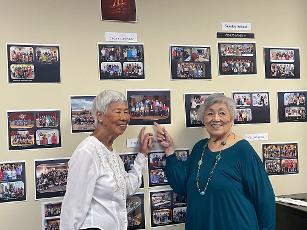


Findings
MaintainingBalance
Hobbies as a Self-CareOutlet
By Jermicah LottAs a Mellon, it can be challenging to juggle all of the responsibilities that you have From reading and engaging with your secondary source materials, actually conducting your research, receiving feedback on ideas and applications and taking your courses, it can become very stressful at times. This is why I take time out of every day to engage in hobbies that keep mesaneand makemehappy
In the morning of every weekday, I start off my day in the gym The gym is sort of a safe-haven for me because I am focused on the goal at hand and not on anything school related.
Prime Time Deion Sanders, a professional Hall of Fame NFL player and former MLB player once said, ?If you look good, you feel good, If you feel good, you perform good, If you perform good, they pay good.?My body is my templeand when I take good care of the structure of my temple, I feel better holistically which will lead to me performing well and improving mentally, physically, and academically I developed good habits in the gym by being consistent holistically. For example, I make sure I wake up and go to the gym at approximately the same time everyday I do this so much at this point that when I don?t, my day seems off. You could also tie your other consistent habits to the gym. so think about how you consistently perform those habits and think of parallels to help you with not only the gym but other parts of your lifeyou want to progressively improve.

Continuing with hobbies that keep my mind off of school, I also journal on a pretty consistent basis. Journaling allows me to write down and express all of my thoughts in a way that I really wouldn? t want to tell anyone else Additionally, I use my journal as ?mentality archive" Being able to track the progression of my mindset at particular times is helpful for me because I like to see how and where I am building consistent habits I also skateand take
"My body is my temple and when I take good care of the structure of my temple,I feel better holistically which will lead to me performing well and improving mentally, physically, andacademically"
walks from time to time so that can potentially communicate with people who are positioned outside of the ?WashU bubble? because they have completely different mindsets than individuals
inside of the WashU bubble that remind me of my family and community back in Canton, Mississippi Engaging with hem allows me to feel a sort of connection to my hometown which also keeps mefrom breaking down
Moral of the story is? do things that make YOU happy and that takes your mind off of anything school related! That is the only way to survivethematrix wecall academia!
After graduating college, the next step for those continuing their education is graduate school Whether that be medical school, a master?s program, or a PhD, these programs are additional years of school that push people to consider whether or not to pursue a graduate program directly after undergrad Before going onto this next step of our lives, some of us decide to take a step back and take time away from school; hence, a gap year Recent graduates choose a gap year to gain experience in their fields of interest, strengthen their resumes, personal development, or explore their academic or career goals. For Gabi Senno, it was a mix of reasons
Gabi is a 2022 graduate from WashU and a Mellon Mays alumna. Currently working as a curatorial assistant at the Museum of the City of New York, she plans on applying for PhD programs next cycle, marking three years off from school When I sat down for a phone conversation with her, she shared that she wanted to do at least one gap year when she graduated, as the COVID-19 pandemic impacted her undergraduate experience ?COVID drastically changed my education,? she told me. ?It was still going on when I graduated.? It also, though to a lesser extremeextent, was still going on when she applied for her PhD in the fall and winter of 2022 Gabi spent that summer doing an internship with the Archives of American Art at the Smithsonian. She also worked part-time for Sam Fox as an Exhibition and Podcast assistant, helping with research on Japanese American architects during World War II Her position at Sam Fox would eventually lead her to New York, whereshe?s been ever since
Multiple gap years wasn? t always the plan. Gabi had applied to graduateschool in 2022 and she was certain about going to graduate school, but visiting schools and interviewing cemented her feelings of lack of experience in the real world ?I decided to take more time off to develop as a person outside of academics,?sherecalled
While in her time away from school, Gabi has a lot more life perspective, and her jobs have given her experiences she probably wouldn? t have gained had she gone to graduate school right away. ?People would say treat grad school as a job,? she told me. Having never had a full-time job before, she now understands that sentiment. After 5, you don? t have to think about work. Her job has also given Gabi a hands-on experience with research. Although scholarly research is important, and there?s a reason we as Mellon scholars strive to do critical research in the academy, public scholarship is also crucial. Instead of books or journals, she learns from materials: ?You can? t replace first-hand experience.? As Gabi teaches us, the best way to navigate a gap year involves listening to yourself and your needs She initially planned for one gap year, but ended up taking three years off, gaining valuable personal growth
Getting work experience also gives us insight into different career paths by letting us ?do? those paths instead of reading or hearing about it
If you?re wondering if graduate school is the path for you, takethetimeto think about it


ReclaimingCreativity

How to BalanceWriting for theAcademy versus for Passion
My time in undergrad has been spent negotiating my passion for writing as a creative and writing as an academic. My love for prose and poetry often maximizes my word counts before my thesis, and the academic jargon carves the passion from my characters.
Prior to entering college, I crafted my own worlds? short stories, poems, prose My fifth grade year was full of mystery short stories with suspicious about our mayor?s death Throughout middle school, my writing maintained morbidity as I found myself reading Southern gothic classics likeWilliam Faulkner and Eudora Welty I had even spent time at summer writing
By Leandrea Claycamps since that was how much I loved theart of writing.
When I came to WashU, I enveloped a hope that I would still explore my interests, but through two poetry writing classes, I lost my spark for writing And then, boom! The love was rekindling in a class called "Writing the Visual World" with Professor Bethany Daniels Theclass was perfect timing as I embarked on an extremely personal journey through introspection, and my QWERTY keyboard found new usage outside of class papers.
ABROAD
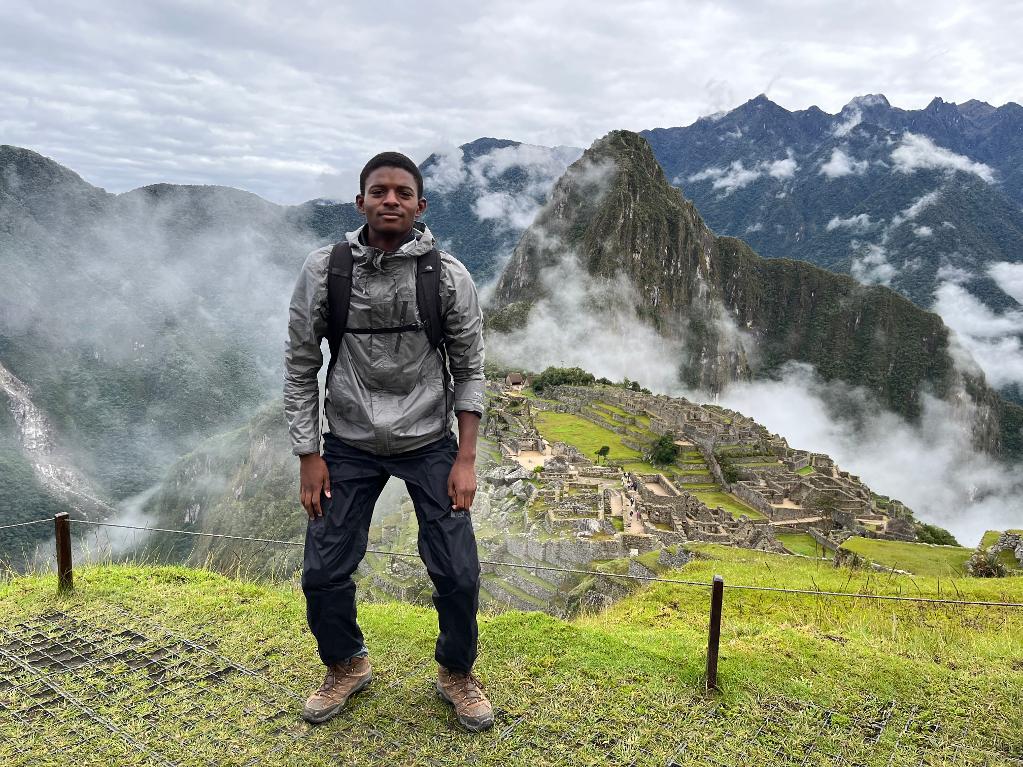
TheGrowth in Expanding Our Studies
By Zach GoreEven though I am still at the beginning of my six month study abroad experience in Chile, and have yet to start classes, I have found it to be a very enjoyable experience. Through this program, I have been able to travel widely across South America to countries such as Paraguay, Brazil, and Peru while experiencing many new things which I have found extremely enjoyable The adjustment to living in a country where few people speak English as a first language has not always been easy, but it has pushed me to persevere in the face of obstacles. In fact, I am extremely grateful for this adversity, because it has made me a stronger student and a more patient human being I am also grateful to have met so many kind, interesting people through my travels. Through interacting with such people, I have become more tolerant of ways of thinking that are different than my own This, I think, is one of the most important aspects of studying abroad: coming to understand - and maybe even embrace - a culture that is different and foreign to you. If I had to identify one thing that I have been able to do to make the most of my experience abroad, it is keeping an open mind When you leave the borders of your home country, you are quite literally stepping out of your comfort zone But instead of shrinking away from all the new things I havebeen introduced to over the past sixty days, I have tried to truly lean into culture and reflect on how humans areso different yet, in another sense, similar

Discussion
Alumni Spotlights!


My time as a Gaither Junior Fellow, like my time in WashU Mellon Mays, has been grounded in a cohort experience Combined, my peers and I cover regions across the world and issues ranging from democracy to nuclear policy My corner of theworld is the Asia Program where I?ve had the chance to work on China-California relations, deep-sea mining, everything ports, and China?s AI governance policies I?ve been lucky enough to co-author pieces with my supervisors, share the table with influential policy researchers and makers, and devote time to my independent research (still connected to my undergrad work in Mellon) Thewonderful thing about my fellowship
We are taking some time to spotlight some amazing accomplishments from our lovely Alumni! We are so fortunate to have such talented, driven, and supportive Alumni in the Washu Mellon network. Read below for a few of this year's highlights:
Clayton Covington was awarded with the National Science Foundation Graduate Research Fellowship Program (NSF GRFP) This is a highly competitive program designed to ensure the divserity and quality of thescientific and social scientific workforce.
Ale Uriostegui will pursue her MPhil in Latin American Studies at the University of Cambridge to study social movement theory in Latin America through the Gates CambridgeScholarship.
Marc Ridgell was awarded with the Price Lab's Andrew W. Mellon Summer Research Fellowship to initiate a digital exhibition that depicts LGBTQ+ historical and contemporary organizing in Philadelphia
A Day in theLifeas a Gaither Junior Fellow
By: Sarah del Carmen Camachois that for one year, I am encouraged to go out into Washington D.C. and find what there is to learn about thepolicy ecosystem and how that influences concrete policy. Living in the capitol has challenged me, introduced me to like-minded peers, and given me so much room to grow I do miss, however, the community of professors, librarians, and fellow researchers that I had at WashU. I always know that when I?m at my desk, in the reading rooms of the Library of Congress, or out in the world, I carry the skills and lessons that I cultivated as a Mellon.
LessonsFromAlumni
By Marc RidgellPursuing a PhD is an endeavor that is very daunting and difficult, yet it is also a privilege Pursuing a PhD, however, can bemore difficult if you are going straight through from undergrad. Here are my tips about transitioning to and surviving thefirst year of a PhD program in thehumanities or social sciences, particularly from the perspective of someone who is a first-generation and low-incomecollegestudent:
1) Look for a quality, affordableapartment.
When I first moved to Philadelphia, my apartment had a roach infestation. It was a horrible experience, and I had to move to a new apartment with the same rent price If you have the privilege of visiting apartments before moving to the new city you are attending graduate school in, do so! If you cannot afford it (like me), ask friends living there already to visit apartments for you, do virtual tours, and ask the right questions to landlords
2) Do not stress about reading or getting it all!
Much of the theory and scholarship you are reading your first year is meant to provide a breadth of knowledge to your discipline or field. Enjoy the learning curve and do not be so quick to critiquework, especially if you do not understand it fully Ask informed questions in your seminars to your classmates and professors. You are there to both learn and create knowledge, but take advantage of just learning first And reading and skimming in graduateschool is a skill!
3) Takecareof your health and social life. Exercise, rest, and community is so important, if not more important than the PhD itself. Late capitalism constantly reminds us otherwise. Because academia in the humanities and social sciences is typically activist, advocacy, or social-justice oriented, your own contribution to academic labor may be undermined because the scholarship you are reading or work you are doing is important Pursuing academia is just like any other industry at the end of the day; you must find activities and rest that works for you. The work you produce and thinking you do will be more enjoyable and impactful if you actually prioritizeyour own health and community.

Reflections and Advicefrom First Year PhD Students
By Olivia Kerr
As I walk through campus and look at the buildings? buildings belonging to the third university I haveattended? I cannot help but think about thefact that I?mhere. This happens every time. I livein Philadelphia now It?s much different than my homeof Chicago, my freshman year of undergrad in Boston, or my three years spent finishing undergrad in St Louis It?s strange to think that a year ago, I was planning my life in grad school? exactly where I?m at now I couldn? t have planned for this I think that?s a good thing I wish I could go back in time and tell 16-year-old Olivia, enrolled in an African American history elective course, that I?d be a PhD student at 22. I wish I could tell her, ?You?ll have your doctorate at 28 I promise it?ll all be worth it. Hang in there.? I wish I could tell my past self this because I tell my present self this? every single day I will not lie and say that a Ph D program is easy I mean, of course it?s not. My program is considered the best in the country. Who would?ve thought I?d be here? I mean, my SAT score was embarrassingly low. I used to think that ?somehow? I made it here? putting 100% of the reasoning for my attending Penn as being dueto others? actions and help. That?s the Impostor Syndrome talking It never really goes away for me, but sometimes it?s quieter Sometimes I remember that I would not be here if it werenot for me. That may sound obvious, but when you?re struggling with belonging and a feeling of academic inferiority, every affirmation helps. I am proud of myself? even when I cannot articulate it. I practice gratitude daily for the faculty at WashU, my Mellon peers, and everyone who cheered me on during my journey These cherished people continue to be support systems and colleagues. I?ll be an African Americanist historian one day I graduated from WashU as an undergrad in 2023 with a bachelor?s in African and African American Studies. I started graduate school for a Ph.D. in Africana Studies at Penn in 2023. Not to be cliché, but I sincerely mean it when I say that hard work pays off and to follow your dreams I am so thankful for Mellon Mays at WashU. Y?all mademy Mondays morethan just regular Mondays.


ThankYoutoAll ofOur Mellon Supporters
Washington University's Mellon Mays Undergraduate Fellowship hosted the central region's annual conference in fall of 2023 We want to takespaceto say thank you to the peoplewho made this possible! Thank you to Meredith Austin, Bernard Cummings, Kamryn Haynes, Jennifer Givens, Wilmetta Toliver-Diallo, Jonathan Fenderson, and Christina Smiley for all their work in putting together an amazing conference. Thank you to our Alumni who came back to participate and support the conference and our fellows
We also want to thank Erin McGlothlin, Rudolph Clay, and Clara McLeod for their consistent support of our program.






